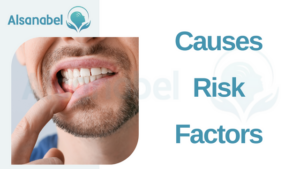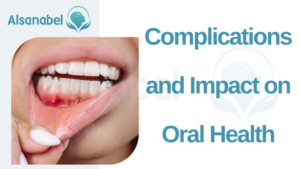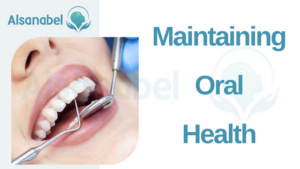Gum disease, also known as periodontal disease, is a common concern that affects millions of people worldwide. It occurs when the gums become infected due to bacteria buildup and poor oral hygiene practices. Understanding it and its impact on oral health is crucial for maintaining a healthy mouth and preventing further complications.
Understanding gum diseases and its impact on oral health
Gum disease starts with the accumulation of plaque on the teeth and along the gumline. If left untreated, the plaque hardens into tartar, leading to inflammation and infection of the gums. The early stage of this disease, known as gingivitis, is characterized by red, swollen, and bleeding gums. However, if it progresses, it can develop into a more severe condition called periodontitis.
The impact of gum disease on oral health is significant. It can lead to various complications, including:
- Tooth Loss:As gum diseases progresses, it can cause the gums to recede, leading to loose teeth and eventual tooth loss.
- Bad Breath:The bacteria responsible for gum diseases release toxins that can cause chronic bad breath, which can be embarrassing and affect social interactions.
- Gum Recession:Gum diseases can cause the gum tissue to pull away from the teeth, exposing the tooth roots and making them more vulnerable to decay and sensitivity.
The importance of maintaining healthy gums
Maintaining healthy gums is crucial for overall oral health. Here are some reasons why:
- Prevention of Tooth Loss:By preventing or treating gum diseases, you can avoid the progression of the condition, which is a leading cause of tooth loss in adults.
- Improved Overall Health:Research has linked gum diseases to various systemic conditions such as heart disease, diabetes, and respiratory infections. By keeping your gums healthy, you can potentially reduce the risk of developing these health issues.
- Enhanced Appearance:Healthy gums contribute to a beautiful smile. By keeping your gums free from disease, you can maintain an attractive and confident appearance.
In conclusion, gum diseases can have a significant impact on oral health, leading to tooth loss, bad breath, and gum recession. It is essential to prioritize gum health by practicing good oral hygiene, including regular brushing, flossing, and professional dental cleanings. Tackling it at an early stage can prevent further complications and help maintain a healthy smile.
Causes and Risk Factors

Poor oral hygiene
Gum diseases, also known as periodontal disease, is a common dental condition that affects the tissues surrounding the teeth. One of the primary causes of this disease is poor oral hygiene. When oral hygiene practices, such as brushing and flossing, are neglected, plaque builds up on the teeth and gums. Plaque is a sticky film of bacteria that can irritate the gums and lead to inflammation, known as gingivitis.
If gingivitis is left untreated, it can progress to a more severe form of gum diseases called periodontitis. Periodontitis involves the destruction of the gum tissue and underlying bone. This can result in tooth loss if not properly treated. Therefore, maintaining good oral hygiene practices, including regular brushing and flossing, is essential in preventing this disease.
Factors that can increase the risk of developing gum disease
In addition to poor oral hygiene, there are several other risk factors that can increase the likelihood of developing gum diseases. These include:
- Tobacco use:Smoking or using tobacco products has been strongly linked to gum diseases. Tobacco use reduces blood flow to the gums, making it harder for the body to fight off infection.
- Genetics:Some individuals may be more genetically predisposed to developing gum diseases. If you have a family history of gum disease, it is important to be extra vigilant about maintaining good oral hygiene.
- Hormonal changes:Hormonal changes that occur during pregnancy, puberty, and menopause can make the gums more sensitive and prone to inflammation.
- Medical conditions:Certain medical conditions, such as diabetes and HIV/AIDS, can weaken the immune system, making it harder for the body to fight off gum infections.
- Medications:Some medications, such as certain types of anticonvulsants and immunosuppressants, can increase the risk of gum disease.
By understanding the causes and risk factors associated with gum diseases, individuals can take proactive steps to prevent its development. Regular dental check-ups, proper oral hygiene practices, and addressing any underlying medical conditions can help maintain optimal oral health and prevent the onset of gum diseases.
Signs and Symptoms for gum disease
Gum diseases, also known as periodontal disease, is a common dental condition that affects the gums and supporting tissues of the teeth. It is important to be aware of the signs and symptoms of gum diseases so that you can take prompt action to protect your oral health. Here, we will discuss the common signs and symptoms of gum diseases and emphasize the importance of early detection and treatment.
Common signs and symptoms of gum diseases
- Bleeding gums:One of the most characteristic signs of gum disease is bleeding gums, especially during brushing or flossing. Healthy gums should not bleed, so if you notice blood while practicing your oral hygiene routine, it may be a sign of gum disease.
- Swollen or tender gums:Inflamed gums that appear red or swollen can indicate gum diseases. They may also feel tender or sensitive to touch.
- Receding gums:As gum disease progresses, the gums may start to pull away or recede from the teeth, exposing the tooth roots. This can make the teeth appear longer and lead to increased tooth sensitivity.
- Persistent bad breath:Gum diseases can cause chronic bad breath that doesn’t go away even with regular brushing, flossing, and mouthwash use.
The importance of early detection and treatment
Early detection and treatment of gum diseases are crucial to preventing further damage to your oral health. If left untreated, gum diseases can lead to serious complications, including tooth loss and bone damage.
Regular dental check-ups are essential for early detection. Dentists can perform a thorough examination of your gums and teeth, identify any signs of gum disease, and recommend appropriate treatment. Treatment options may include professional dental cleanings, scaling, and root planing to remove plaque and tartar, antibiotic therapy, and in severe cases, oral surgery.
By seeking timely treatment, practicing good oral hygiene, and making lifestyle changes such as quitting smoking, you can effectively manage gum diseases and maintain a healthy smile for years to come. Remember, prevention and early intervention are key to preserving your oral health
Complications and Impact on Oral Health
Gum disease, also known as periodontal diseases, is a common dental issue that can have significant implications for your overall oral health if left untreated. Understanding the potential complications and impact of gum disease is crucial to maintaining a healthy smile. Here, we will explore the potential complications of untreated gum disease and how it can affect your overall oral health.

Potential Complications of Untreated Gum Diseases
If gum diseases is not properly treated, it can lead to various complications, including:
- Tooth Loss:Advanced gum disease can result in tooth loss as the gum tissues and bone that support the teeth become weakened and damaged.
- Bad Breath:Persistent bad breath, or halitosis, is a common symptom of gum disease. The bacteria and plaque buildup in the gums can emit an unpleasant odor.
- Receding Gums:Gum disease can cause the gums to recede, exposing more of the tooth surface and increasing the risk of tooth sensitivity and decay.
- Gum Abscesses:Pockets of pus can form as a result of gum disease, leading to painful gum abscesses that require immediate treatment.
How Gum Disease Can Affect Your Overall Oral Health
Gum disease can have a significant impact on your overall oral health, including:
- Increased Risk of Tooth Decay:Gum disease weakens the gum tissues and bone, making it easier for bacteria to penetrate and cause tooth decay.
- Worsening of Existing Dental Issues:If you already have dental problems such as cavities or crooked teeth, gum disease can exacerbate these issues and make them more challenging to treat.
- Systemic Health Concerns:Emerging research suggests a link between gum disease and systemic health conditions like heart disease, diabetes, and respiratory infections. Maintaining healthy gums is vital for overall well-being.
By understanding the potential complications and impact of gum disease, you can prioritize preventive measures such as regular dental check-ups, proper oral hygiene practices, and prompt treatment of any signs of gum disease. Your oral health plays a crucial role in your overall well-being, so taking care of your gums is essential.
The impact of gum diseases on overall health: Treatment techniques and prevention
Prevention and Treatment for gum disease
When it comes to maintaining good oral health, preventing gum disease is essential. Gum disease, also known as periodontal disease, is a common condition that affects the tissues surrounding the teeth. It can lead to gum recession, tooth loss, and even systemic health issues if left untreated. Here, we will explore effective strategies for preventing gum disease and some treatment options available.
Effective strategies for preventing gum disease
- Maintain good oral hygiene:Brush your teeth at least twice a day with a soft-bristled toothbrush, floss daily, and use mouthwash to remove plaque and bacteria.
- Visit your dentist regularly:Regular dental check-ups and professional cleanings are vital in preventing gum disease. Your dentist can identify early signs of gum disease and provide appropriate treatment.
- Adopt a healthy lifestyle:A balanced diet, regular exercise, and avoiding tobacco products contribute to overall oral health. Limiting sugary foods and beverages can help prevent plaque build-up.
- Manage stress:Stress can weaken your immune system and make you more susceptible to gum disease. Practice stress management techniques such as exercise, meditation, or engaging in hobbies.
Treatment options for gum diseases
- Non-surgical treatments:Scaling and root planing, also known as deep cleaning, is a common non-surgical treatment for gum diseases. It involves removing plaque and tartar from below the gumline and smoothing the tooth roots to prevent the accumulation of bacteria.
- Surgical treatments:In advanced cases of gum diseases, surgical intervention may be necessary. Procedures such as gum grafting, flap surgery, or bone grafting can help restore gum tissue and stabilize the teeth.
- Antibacterial medications:Antibiotics may be prescribed to control bacterial infections associated with gum diseases. These medications can be taken orally, applied topically, or inserted directly into the gum pockets.
Preventing gum disease through good oral hygiene practices and regular dental visits is key to maintaining optimal oral health. However, if gum diseases is already present, early detection and appropriate treatment can help restore and preserve your oral health.
Maintaining Oral Health
When it comes to oral health, it is crucial to pay attention to gum disease and understand its impact. Gum disease, also known as periodontal disease, refers to an infection of the tissues that support the teeth. It is a common oral health issue that can have serious consequences if left untreated. In this article, we will explore the importance of maintaining good oral hygiene practices and the role they play in preventing gum disease. We will also highlight the significance of regular dental check-ups and cleanings in preventing and managing gum disease.

Good oral hygiene practices and their role in preventing gum disease
Maintaining good oral hygiene practices is the foundation of preventing gum disease. Here are some key practices to include in your daily routine:
- Brushing twice a day:Brushing your teeth twice a day with fluoride toothpaste helps remove plaque and prevent the buildup of bacteria that can cause gum diseases.
- Flossing daily:Flossing helps remove plaque and bacteria from between the teeth and along the gumline, where brushing alone cannot reach.
- Using mouthwash:Mouthwash can help reduce bacteria in the mouth and freshen breath. Choosing an antiseptic mouthwash can provide additional protection against gum diseases.
- Eating a balanced diet:A diet rich in fruits, vegetables, and whole grains, and low in sugary and acidic foods, can help promote healthy gums and overall oral health.
The importance of regular dental check-ups and cleanings
Regular dental check-ups and cleanings are essential for preventing and managing gum diseases. Here’s why they are important:
- Early detection:Regular dental visits allow your dentist to spot early signs of gum diseases and take prompt action to prevent further progression.
- Professional cleanings:Dental cleanings remove plaque and tartar buildup that cannot be effectively removed through brushing and flossing alone, reducing the risk of gum diseases.
- Personalized advice:Dentists can provide personalized advice on oral hygiene practices and lifestyle changes that can help prevent gum diseases and maintain optimal oral health.
By practicing good oral hygiene at home and scheduling regular dental check-ups, you can significantly reduce the risk of gum diseases and ensure the health of your teeth and gums. Remember, prevention is always better than cure when it comes to your oral health.
The Benefits of Dental Water Floss 2023
Lifestyle Factors and Oral Health
When it comes to oral health, your lifestyle choices play a significant role in preventing or developing gum disease. Gum diseases, also known as periodontal disease, is an infection of the gums that can lead to tooth loss if left untreated. In this article, we will explore the impact of lifestyle choices on gum disease, particularly focusing on diet and smoking.
The impact of lifestyle choices on gum diseases
Your lifestyle choices can greatly influence the health of your gums. Poor oral hygiene practices, such as infrequent brushing and flossing, can allow harmful bacteria to accumulate in the mouth, leading to gum disease. Additionally, stress and poor sleep can weaken your immune system, making it harder for your body to fight off infections, including gum disease.
How diet and smoking can contribute to gum diseases
Your diet can also affect the health of your gums. Consuming excessive amounts of sugary foods and drinks can contribute to the growth of bacteria in your mouth, increasing the risk of gum diseases. On the other hand, a balanced diet that includes plenty of fruits and vegetables can provide essential nutrients to support gum health.
Smoking is another significant risk factor for gum disease. Smoking weakens the immune system and reduces blood flow to the gums, making it more difficult for your body to heal and fight off infections. Smokers are at a higher risk of developing severe gum diseases, experiencing tooth loss, and having a slower healing process after dental treatments.
In conclusion, making healthy lifestyle choices, including practicing good oral hygiene, maintaining a balanced diet, and avoiding smoking, is crucial for preventing gum diseases. By taking care of your oral health through these lifestyle factors, you can ensure a healthy smile for years to come.
Final thoughts on preventing and treating gum disease
Preventing and treating gum disease requires a proactive approach to oral health. Here are some final tips to help you maintain healthy gums:
- Practice good oral hygiene:Brush your teeth at least twice a day, floss daily, and use an antiseptic mouthwash to remove plaque and bacteria from the gumline.
- Quit smoking:Smoking weakens the immune system and increases the risk of gum diseases. Quitting smoking can significantly improve gum health.
- Eat a balanced diet:Opt for a diet rich in fruits, vegetables, whole grains, and lean proteins. These foods provide essential nutrients for gum health.
- Avoid excessive alcohol consumption:Heavy alcohol consumption can contribute to gum diseases. Limiting your alcohol intake can help maintain healthy gums.
- Visit your dentist regularly:Regular dental check-ups and professional cleanings are essential in detecting and treating gum problems early.
Remember, gum diseases is preventable and treatable with proper oral care and regular visits to your dentist. By taking the necessary steps to maintain gum health, you can ensure a healthy smile for years to come.
